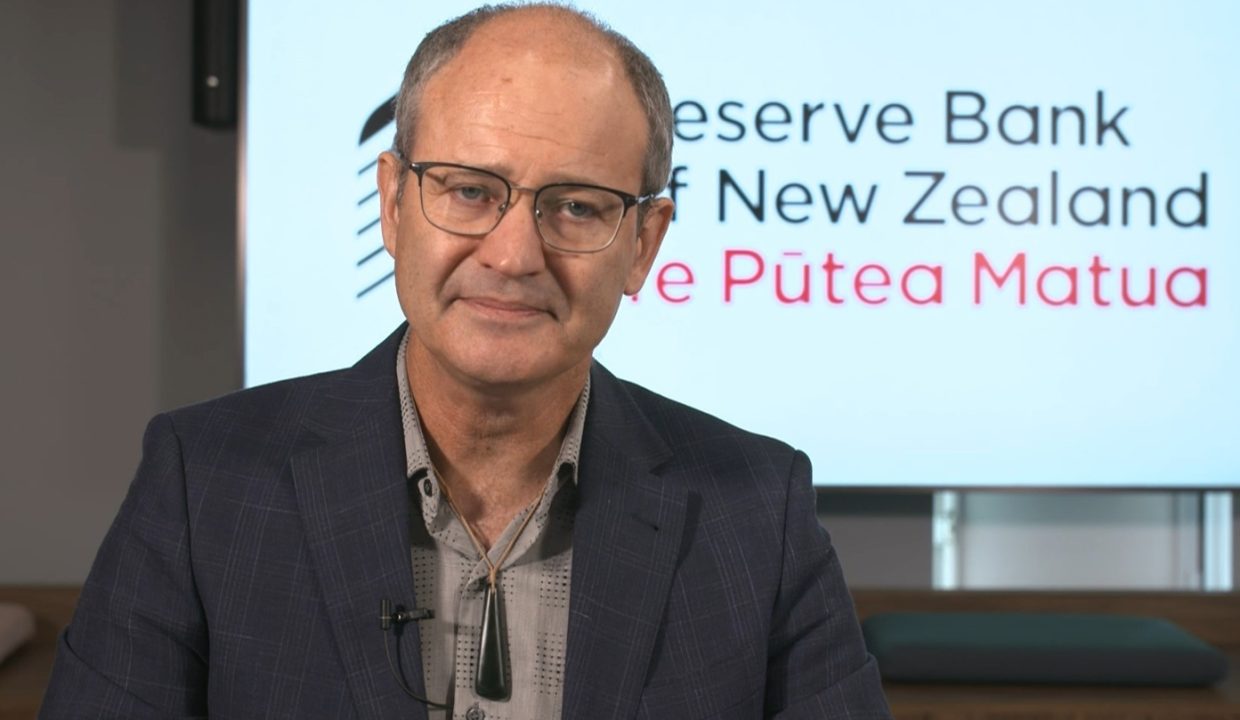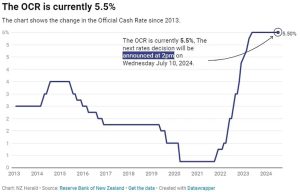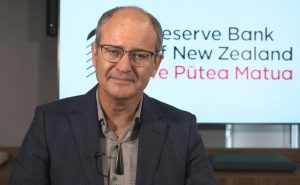
뉴질랜드 중앙은행, 2% 인플레이션 회복을 위한 정책 세부 계획 발표
The Reserve Bank of New Zealand(RBNZ) Unveils Detailed Policy Plans for 2% Inflation Recovery
‘The Reserve Bank of New Zealand(RBNZ) announced a long-term plan to restore inflation to the 2% level.’
The Reserve Bank of New Zealand(RBNZ) has recently elaborated on its inflation management strategy, announcing plans to stabilize inflation over the next 1-2 years amid challenging economic conditions characterized by high inflation and sluggish growth.
In a speech delivered just ahead of the first quarter Gross Domestic Product (GDP) results, RBNZ’s Chief Economist Paul Conway addressed critical aspects of inflation.
Conway emphasized, “Our goal is to sustain inflation at a 2% level that supports sustainable economic growth.” He notably assessed that current inflation levels are likely to stabilize over the next 1-2 years.
He evaluated the current state of inflation as “not as severe as it was compared to a year ago.” Conway explained the Monetary Policy Committee’s (MPC) approach to maintaining annual Consumer Price Index (CPI) inflation between 1-3%, reporting that CPI inflation for the first quarter rose by 0.6% as of December last year and by 4.0% year-on-year.
Conway stated the aim to achieve 2% inflation over the medium term and added that “MPC is striving to achieve this target within 1-3 years.”
Further, he explained how the Official Cash Rate (OCR) is utilized in inflation management strategies, noting that “it takes time for OCR changes to have a substantial impact on the economy,” and emphasized that market reactions may not be immediate.
Conway highlighted that tight labor markets and supply shortages during the COVID-19 pandemic were significant contributors to inflationary pressures. He analyzed that current economic slack and reduced inflation expectations from households and businesses play crucial roles in moderating comparative inflation.
Looking ahead to 2024, Conway anticipates that economic slack will accumulate, which he expects will significantly impact domestic inflation reduction.
Finally, he reported heightened public interest in inflation due to recent years of inflation targets being exceeded. Conway suggested, “Reduced inflation expectations and decreased tendencies for significant price increases among businesses would enhance inflation stability.”


▲ RBNZ’s Chief Economist Paul Conway
뉴질랜드 중앙은행, 2% 인플레이션 회복을 위한 정책 세부 계획 발표
‘중앙은행(RBNZ)은 인플레이션을 2% 수준으로 회귀시키기 위한 장기적 계획을 발표했다.’
뉴질랜드 중앙은행은 최근 인플레이션 관리 전략을 다시 세밀히 설명하며, 앞으로 1~2년 동안 인플레이션을 안정시킬 계획을 밝혔다. 높은 인플레이션과 경제 성장 둔화의 어려운 시기에 중앙은행(RBNZ)은 국가의 인플레이션을 2%로 회복시키기 위한 구체적인 전략을 개요로 설명했다.
중앙은행의 수석 경제학자인 폴 콘웨는 1분기 국내총생산(GDP) 결과 발표를 하루 앞두고 인플레이션에 대한 연설을 통해 이와 관련하여 중요한 발표를 하였다.
폴 콘웨는 최근 연설에서 “우리의 목표는 2%의 인플레이션을 지속 가능한 수준으로 유지하고, 이를 통해 경제의 성장 가능성을 확대하는 것”이라며 중앙은행의 정책 방향성을 강조했다. 그는 특히 현재 인플레이션 수준이 1~2년 동안 안정 상태를 유지할 가능성이 높다고 평가했다.
그는 현재의 인플레이션 상태를 “1년 전과 비교할 때 그리 나쁘지 않다”고 평가했다. 콘웨는 중앙은행 통화정책위원회(MPC)가 연간 소비자물가지수(CPI) 인플레이션을 1~3% 사이로 유지하려는 방법을 설명했으며, 지난해 12월 기준 1분기 CPI 인플레이션이 0.6% 상승했고, 전년 동기 대비 4.0% 상승했다고 보도했다.
콘웨는 “중기적 기간에 2% 인플레이션 달성”을 목표로 한다고 밝혔으며, “MPC가 1~3년 내에 이 목표를 달성하려고 노력 중”이라고 덧붙였다.
이어서 그는 공식 현금금리(OCR)가 인플레이션 관리 전략에서 어떻게 사용되는지에 대해 설명했다. “OCR 변화가 경제에 실질적 영향을 미치기까지 시간이 걸린다는 점을 알아야 한다”라며, 시장 반응은 즉각적이지 않을 수 있다고 강조했다.
콘웨는 “코로나19 팬데믹 기간 동안 타이트한 노동 시장과 공급 부족이 인플레이션 증가의 주요 요인”이었다고 지적하며, 현재 경제의 여유 여력과 가계 및 기업의 인플레이션 기대치 감소가 비교역적 인플레이션 둔화에 중요한 역할을 할 것으로 보인다고 분석했다.
콘웨는 “2024년부터 경제에 여유 용량이 축적될 것으로 기대”하며, “이는 국내 인플레이션 저하에 상당한 영향을 미칠 것”이라고 예상했다.
마지막으로 그는 최근 연구 결과에 따라 최근 몇 년간 고려된 인플레이션 목표 초과로 인해 공중의 인플레이션에 대한 높은 관심이 보고되었다고 발표했다. 그는 “인플레이션 기대치가 줄어들고 기업들의 가격 인상 경향이 낮아진다면 인플레이션 안정성이 개선될 것”이라고 설명했다.
